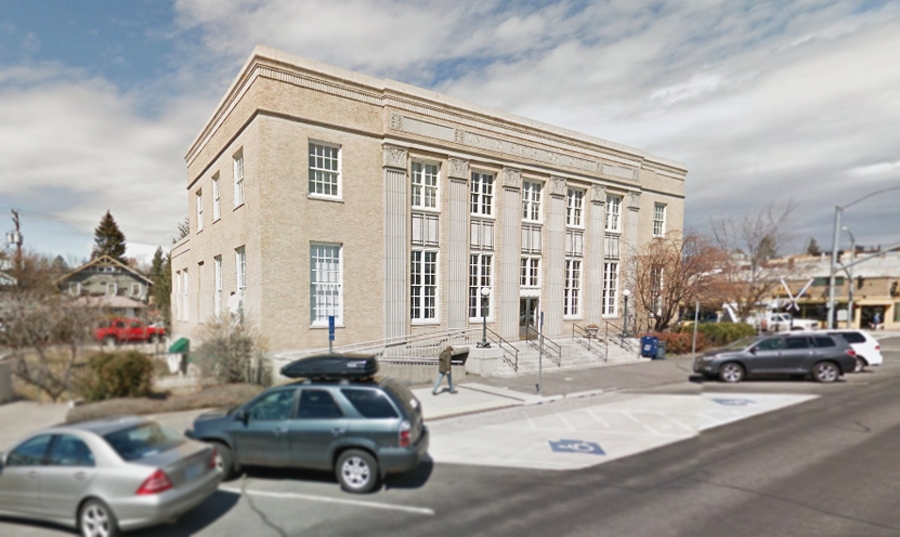Business accelerators and incubators are all the rage. But chambers of commerce still play a vital role as supporters of local businesses.
Cannabis companies abound in Oregon, but many pot startups are still looking for respect. So when the Bend Chamber of Commerce asked Hunter Neubauer to join the board, he jumped at the opportunity.
Neubauer is one of four masterminds behind Oregrown, a so-called farm-to-table cannabis company. He wants to alter public perception when it comes to marijuana and believes the chamber will help his company and the industry gain acceptance.
“I want to see Bend, as it expands, go in the right direction,” he says. “We are all experiencing the effects of growth as a community, and it’s our opportunity to make sure it’s done right.”
Oregon’s business association landscape includes hundreds of organizations, big and small. The star players, of course, are the Portland Business Alliance, the Oregon Business Association and Associated Oregon Industries.
But even as the business association landscape changes — e.g., the pending merger between OBA and AOI, the newbie Business for a Better Portland, led by Switchboard’s Mara Zepeda — in small towns, local chambers of commerce are still playing a vital role for local businesses. These traditional business associations provide critical networking, lobbying and promotional assistance for new and existing companies.
The Bend Chamber of Commerce, for example, provides business support, advocates for policy and represents the private sector in the community.
“This year we are developing a strategic plan that takes these areas of focus and forms key initiatives that are relevant for the next two – three years,” says Chamber President Katy Brooks. “Some of these initiatives will include focusing on workforce development and convening efforts to ensure a pipeline is developed to educate, train and place local talent for our growing workforce needs.”
Brooks says the chamber is examining how to support education and contribute to school funding. In what Brooks describes as a unique role, the chamber took on healthcare affordability. She says many small and mid-sized businesses struggle to put together affordable heath insurance for their employees.
“We partnered with an insurance carrier to form a pool that members can join,” she says. “We will be monitoring potential changes to the Affordable Care Act as it may impact this program and health care affordability.”
The Hood River County Chamber of Commerce Director of Communications Matt Werbach says the Chamber’s mission remains the same even as the region has changed.
“We are still an agriculturally-powered economy and community, but tourism has grown wildly popular throughout Hood River, Mount Hood and the Gorge,” he says. “We simply have to grow to embrace these changes and evolutions, while focusing on how we can continue to make Hood River a better place in which to work and live.”
Werbach calls this the business of listening.
“Business owners need an advocate, a partner, and a promoter, and we act as all those,” he says.
Hermiston Chamber of Commerce CEO Debbie Pedro says chambers of commerce used to provide a strong voice for business development but over time have played less of a leading role in local economic growth. Instead, chambers shifted toward playing host for community and business events.
The Hermiston Chamber does operate the Hermiston Visitor and Conference Center. But Pedro also stresses the importance of political activism and community involvement.
“The good news is most chambers have determined that they are a business organization, so they must diversify,” she says.
They must also take a visionary pro-active approach, she says.
“It is vital that chambers stay engaged with their businesses and to be aware of the issues and trends in this ever-changing business climate and to recognize that each community is unique.”
Unlike the traditional chamber, the Oregon State Chamber functions as an advocate for chambers’ statewide. Their member list features a whopping 84 chambers out of the 120 or so statewide.
“We have this joke in the chamber world that if you’ve seen one chamber you’ve seen one chamber,” says Alison Hart, Oregon State Chamber Executive Director.
Headquartered in Salem, the State Chamber acts as a lobbying arm for its membership and supports professional development.
“My philosophy is it’s really important for chambers to be business advocacy oriented,” Hart says.
Chambers often serve as a resource for businesses that need context on policy and local regulations, she adds.
No industry is more aware of regulatory challenges today than the pot business. For Bend’s Neubauer, participating in the local chamber is a way to help the Bend business community stay relevant. It might also make a dent in long-held perceptions about those working in the cannabis industry.
“We aren’t the ‘stoners’ everyone thinks we are,” he says.



